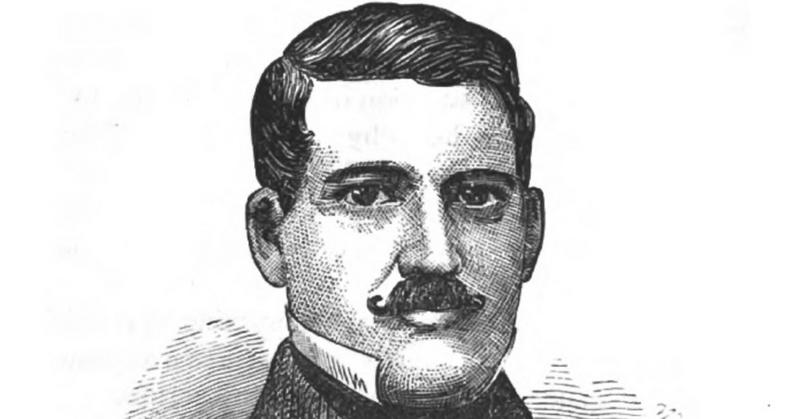Bill The Butcher A.K.A. William Poole: Bio, Facts, & Trivia You Didn't Know
By | September 19, 2020

More than the inspiration for Daniel Day Lewis's character in Gangs Of New York, William Poole, also known as "Bill the Butcher," was a larger-than-life presence in New York City during the 19th century. The big, burly, bare-knuckle brawler led one of the most fierce gangs of the era, the Bowery Boys, before heading up a xenophobic political movement called the Know Nothing Party. Poole's life was filled with tall tales, but we'll try to separate the myth from the man and get to the bottom of this barbaric New York character.
Jersey Boy
He may be intrinsically tied to New York City, but William Poole was born in New Jersey on July 24, 1821. When Poole was 10 years old, he and his family moved to New York City, where his father ran a butcher shop. Poole took over the business when his father retired and became a member of the Howard Volunteer Fire Engine Company #34 on Hudson and Christopher Streets, and between these two ventures, he garnered considerable esteem from the people of Manhattan.
Interestingly, Poole's carnivorous profession wasn't the (sole) basis of his nickname. He was called "Bill the Butcher" because he was a ruthless bare-knuckle boxer who took pleasure in turning his opponents into bloody cuts of meat who used to be men. He was most fond of gouging out his opponents' eyes, leaving them covered in viscera.

The Bowery Boys
New York City was rife with gang violence in the 19th century, and the Bowery Boys were responsible for an overwhelming share of it. Poole was a heavy hitter within the anti-Irish, anti-Catholic, locals-only gang, well known for staking out the ballot box to prevent the Irish from voting by any means necessary and leading the Bowery Boys in a series of street fights against an Irish gang known as the Dead Rabbits. The Dead Rabbits and the Bowery Boys feuded for years, battling on a weekly basis in the streets of the Five Points section of the city.

The Know Nothing Party
Known as the "Know Nothings" because of their secretive nature (when asked of their meetings and rituals, members were instructed to say "I know nothing"), the party formed out of a desire to disenfranchise immigrants, exclude non-Protestants from office, and keep white, non-Irish people in power. In order to join, members had to "be a native born citizen, of native born parents, and not of the Catholic religion," something William Poole could get behind. Poole didn't lead the group, but he was instrumental in making sure that votes went the way the party wanted.

The Wrong Guy To Mess With
Of course, a guy like William Poole was bound to make enemies. One of the most notable was John Morrissey, an Irish immigrant and, like Poole, a bare-knuckle brawler who played a major part in the world of New York politics. He worked with Tammany Hall, an organization that helped the poor and immigrants in New York City. In addition to being on opposite ends of the ideological spectrum, each man thought the other was a cheat in the ring, and when they finally faced off in 1854, Poole didn't hold back. He emerged victorious over Morrissey after gouging out the Irish fighter's eye and leaving him a bloody mess for his friends to clean up off the floor.
Less than a year after their gruesome boxing match, Morrissey plotted Poole's demise with members of the Dead Rabbits. On February 25, 1855, Lewis Baker and Jim Turner cornered Poole in a bar called Stanwix Hall, where Turner shot the Butcher in his leg and Baker shot him through the chest. It took him 11 agonizing days to die from his wounds, but finally, on March 8, 1855, Poole spoke his final words: "Goodbye, boys. I die a true American." Three days later, Poole's funeral was held in Brooklyn's Green-Wood Cemetery, where thousands of mourners turned up to show their respect for the scariest guy in town. The New York Daily Herald wrote of the occasion:
Public honors on a most magnificent scale were paid to the memory of pugilist—a man whose past life has in it much to condemn and very little to commend.

